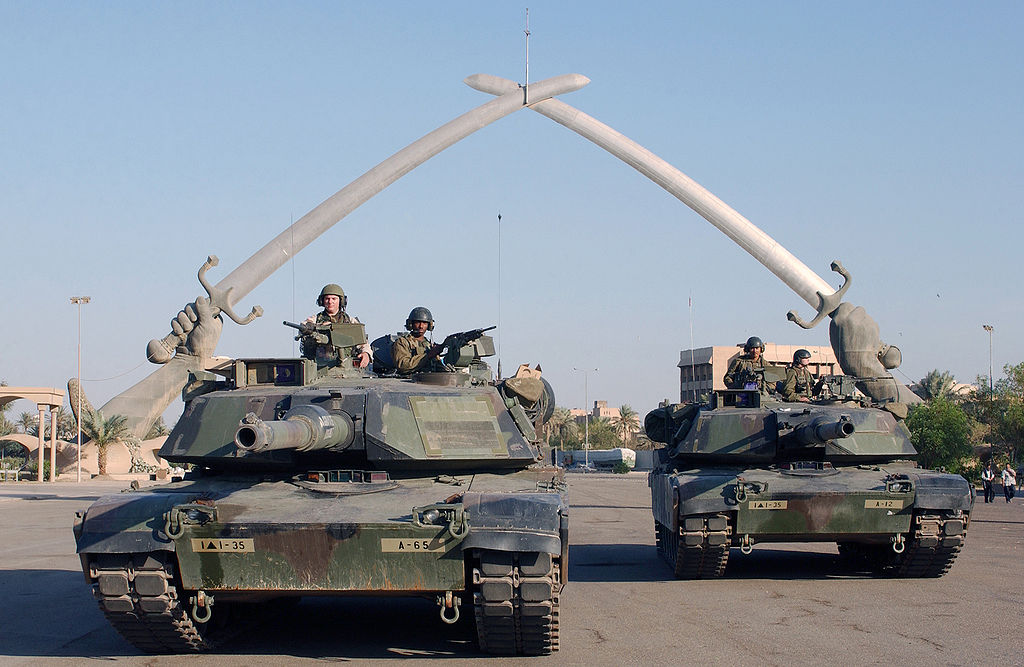![[Photo: Technical Sergeant John L. Houghton, Jr., United States Air Force]](https://studentreview.hks.harvard.edu/wp-content/uploads/2016/10/US-tanks-in-Iraq-1024x667.jpeg)
U.S. tanks in Baghdad, Iraq [Photo: Technical Sergeant John L. Houghton, Jr., United States Air Force]
For the past 35 years, the United States has been militarily involved in the Middle East – from Lebanon to Libya, Iraq to Syria. Yet this extensive involvement in the region has failed to make any lasting positive impact or achieve the United States’ stated goals, according to Rami Khouri, director of the Issam Fares Institute for Public Policy and International Affairs at the American University of Beirut, and a senior fellow at the Harvard Kennedy School’s Middle East Initiative.
Khouri noted in a lecture on Monday at Tufts University’s Fares Center that since January 2015, “the U.S. has dropped 23,000 bombs on Muslim-majority countries” – namely Syria, Iraq, Afghanistan, Somalia, Yemen, and Pakistan.
Instead of more military interventions, Khouri argued that “freedom of expression, rule of law, and economic growth must be fostered to promote functional societies in the Middle East.” Military force alone cannot remedy problems such as poor governance, lack of accountability, and corruption, factors that have caused widespread instability in the region.
Khouri added that many governments refused to acknowledge these underlying problems despite clear signs, such as the Arab Spring uprisings of 2010-11, which he said showed the world that Arab citizens want greater freedoms from oppressive, autocratic governments. Khouri also blamed wealthy Arab monarchies for failing to address economic troubles in the region, despite having the means to do so.
How can this instability be reduced? Inclusion and participation are a key starting point, and Khouri believes that world governments should directly ask the Arab people what changes are most important to them, instead of speaking only with leaders who are often out of touch with the populace they govern. Allowing citizens to more freely express themselves and have their problems addressed, he believes, would reduce support for and participation in militant Islamist groups such as ISIL and others. These groups often grow in strength by promising basic services and jobs to civilians whose needs have been overlooked by their governments.
When asked about the prospect of Syria peace talks, Khouri was pessimistic that the powers involved in the region, namely the US, Russia, Iran, Turkey, Israel, and Saudi Arabia, would be able to reach a point of agreement. He expressed consternation that the powers could not even agree to a two-day ceasefire last week for the delivery of aid – an act he labeled barbarism.
